I was looking for photos of Julius Keilwerth Lucite angel wing key guards this morning, and happened across this interesting auction on eBay. Not only does this horn not have a Lucite key guard, but it isn’t even a Keilwerth. This particular tenor is a Dörfler & Jörka that never got its engraving at the factory.
Source: madeinusa14
Mmm… I wonder how that happened? Did it get buffed away? I suppose that’s possible, but it doesn’t really look like it. It looks like it was never engraved with an ordering company’s name. I suppose an employee from the company might have taken it as his own. Or it might have been a test horn.
In any event, it is a D&J and not a JK. The engraving on the bell is identical to the engraving found on most D&J stencils.
Source: madeinusa14
The mountain peaks above the name badge immediately tell us it’s a Dörfler & Jörka. Here is a D&J-stencilled Voss bell for comparison.
Source: madeinusa14
D&J used metal clothes guards on their saxes, while J. Keilwerth used ones made of Lucite. Here is a clothes guard on a H. Genet alto, compared to the Lucite one found on a Keilwerth Toneking.
Source: madeinusa14
Another Dörfler & Jörka feature were the large mother of pearl buttons on the key guards. (In many horns these were fake mother of pearl, depending on what the ordering company wanted.)
The Keilwerth horns on the other hand, had felts on their key guards which allowed for the adjustment of the key heights. Here this is illustrated on a Toneking alto.
It appears that one of the key defining features of D&J horns—the round thumb screw which fastened the neck—may have been lost at some in this eBay horn’s history. In the photos the screw that is in the existing hole isn’t screwed in very far.
Therefore either the screw is a replacement, and doesn’t fit right. Or the original screw isn’t screwed in right. Regardless, if a person was interested in this sax, he/she might want to ask for more detailed photos of this area of the sax.
Source: madeinusa14
One piece that is definitely missing on the sax is the floating lever which operates the upper octave key on the neck. It is broken off as the above photo indicates.
This obvious damage aside, the seller needs to be forgiven for thinking what he has there is a Keilwerth saxophone. The things I pointed out are pretty obscure to those who know little or nothing about the subtle difference between the 2 brands. D&J were, after all, clones of the Toneking and The New King Julius Keilwerth models. (I didn’t even get into the really obscure differences like post shapes.) 😉
Here is how the seller describes this unlabelled D&J tenor:
TENOR SAX MADE BY JULIUS KEILWERTH IN GERMANY, C. 1935-1950?. Keilwerth made many saxes for other companies, including stencils made for dealers that dealers would then label with their name. This one is not engraved with a dealers name, but is clearly a Keilwerth. Early Keilwerth serial number records are sketchy but I think that it dates from the 40’s or 50’s. This one does have “rolled tone holes” like the vintage Conns. All keys move freely. The key that operates the octave key on the neck is broken at the top of the instrument see photo. Probably would benefit from new pads and corks. It is stamped “MADE IN GERMANY”. There is also a no name mouthpiece and French ligature and cap included. Some dings as seen in the photos. The case is pretty much worthless, I’d probably throw it away. Yes, it’s a tenor, about 29.5″ or 75cm long without the neck.
Source: madeinusa14
If you are interested in putting a bid in on this runaway from the Dörfler & Jörka engraving bench, you only have another day to do so. The auction for this unlabelled D&J tenor ends tomorrow, September 26. At the time of writing there was 1 bid of $299.99 on the sax already.
To read more about the Dörfler & Jörka brand, check out the D&J page on the main portion of my bassic-sax.info website. It contains all kinds of info about the history of the company, lots of photos, as well as comparison/contrast information about the D&J and JK brands.

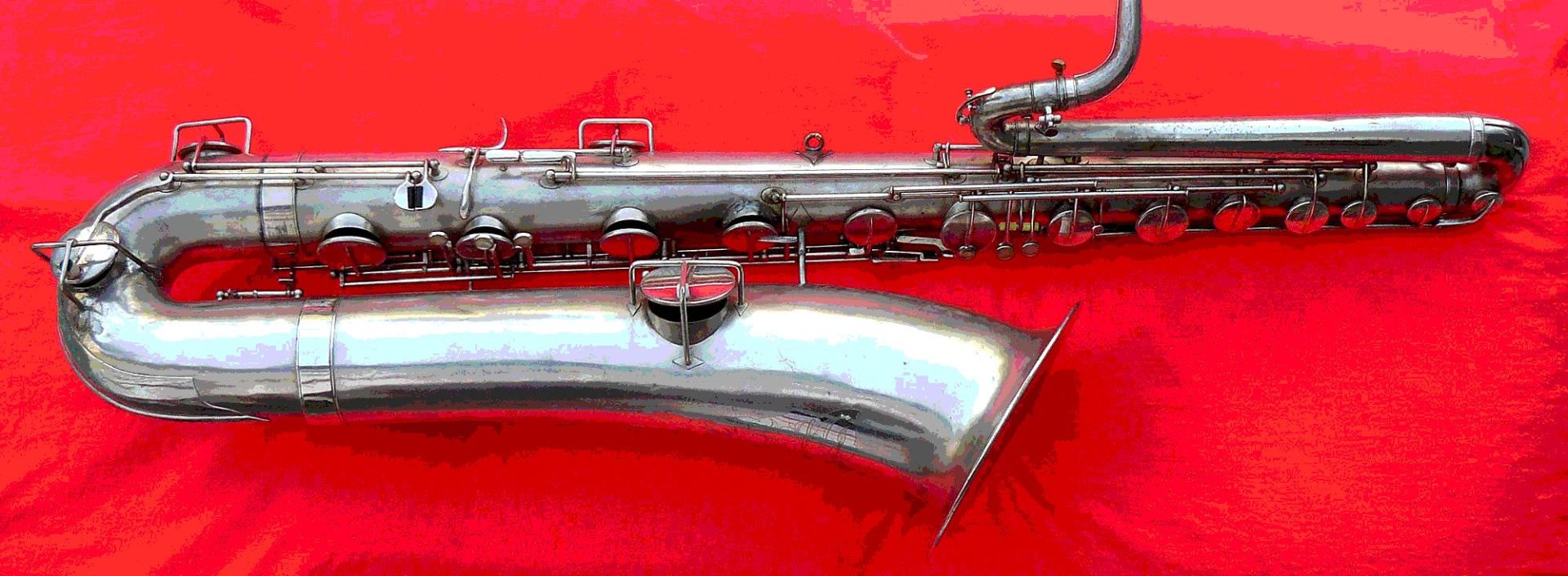






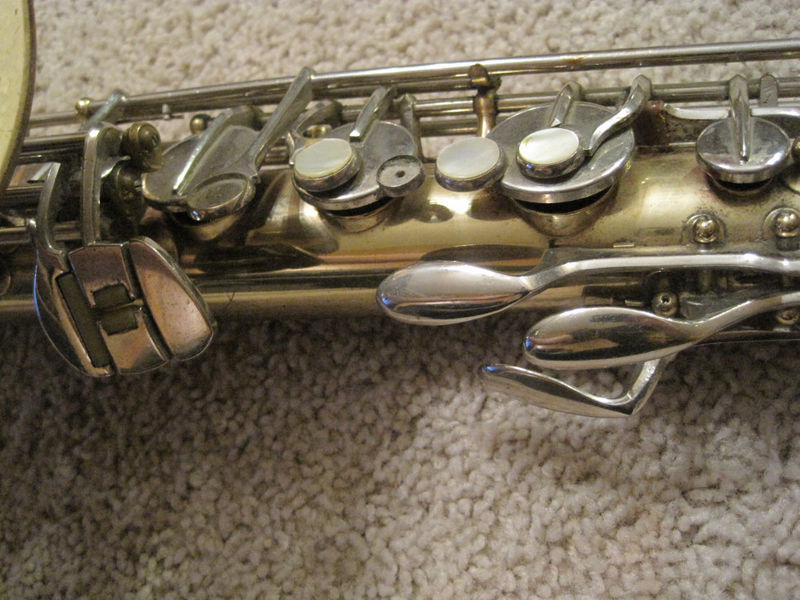
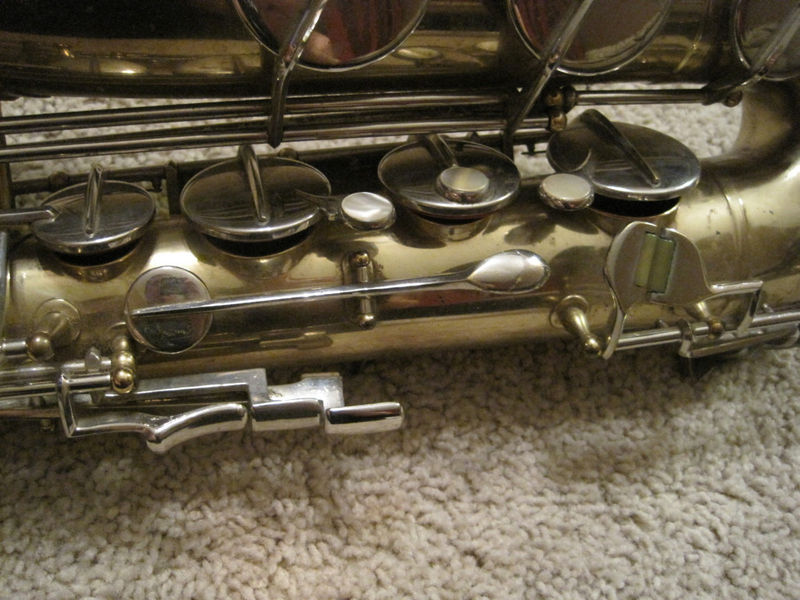
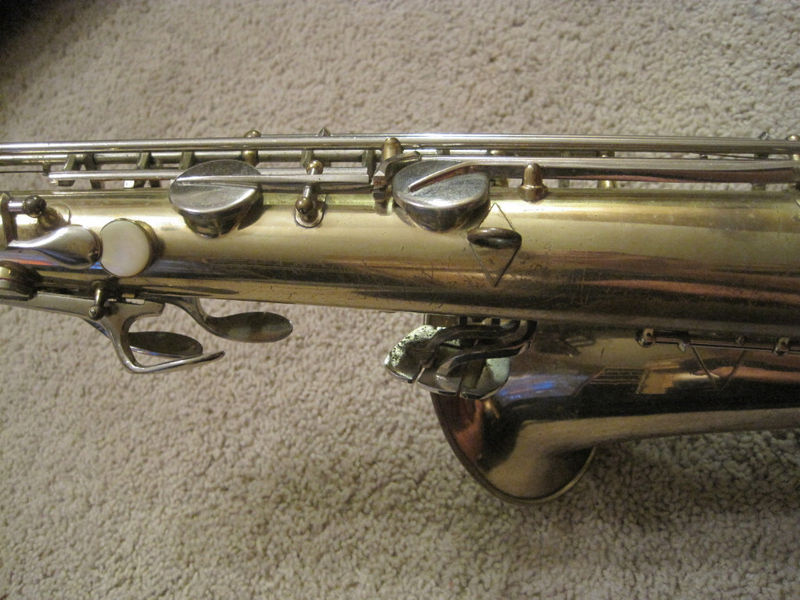
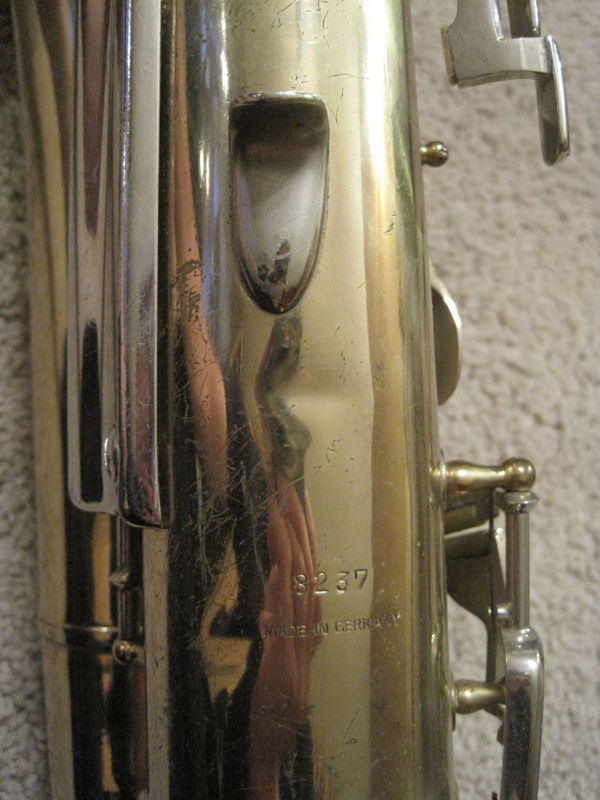
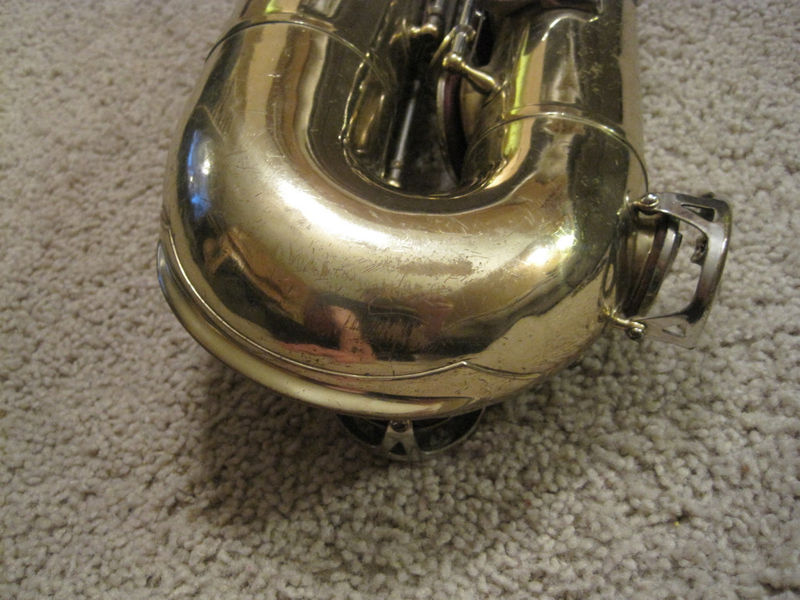
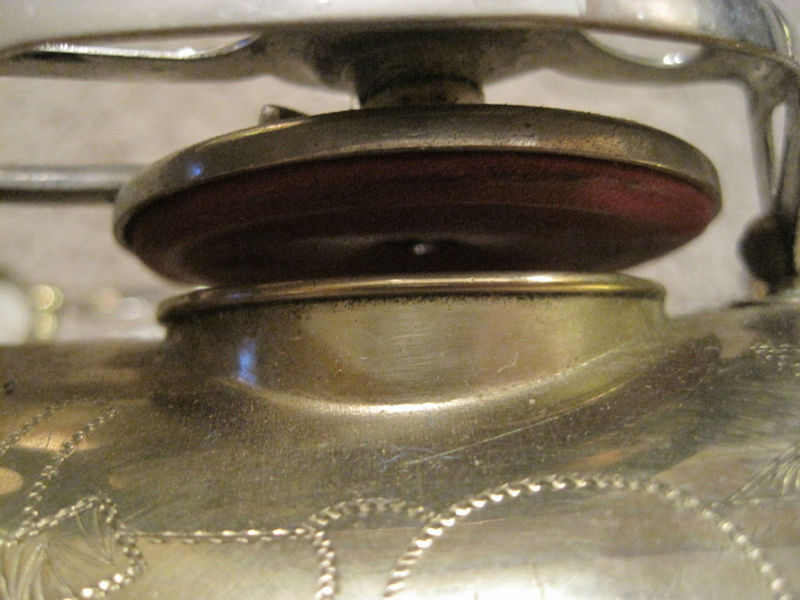


Update: This runaway from the D&J factory did sell. By auction’s end there were 2 bids on this tenor, with the winner getting it for $304.99.